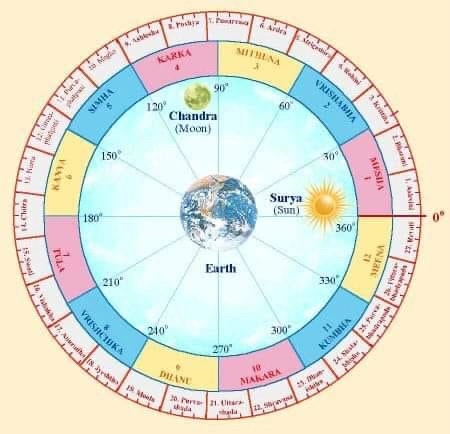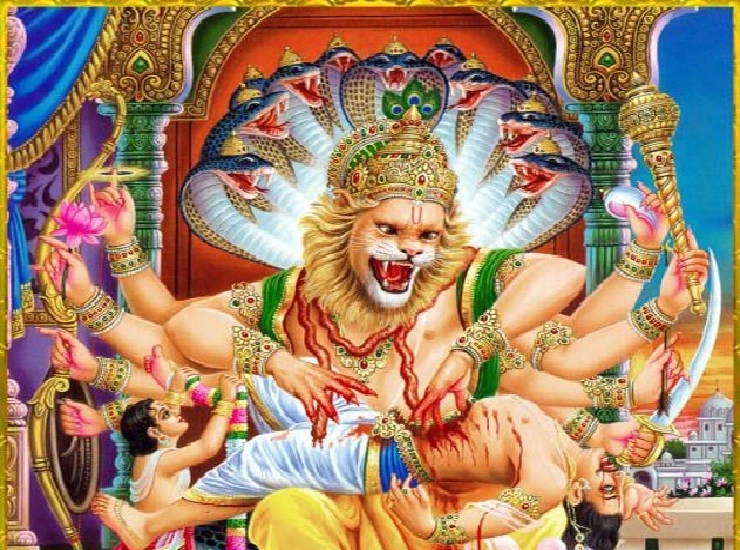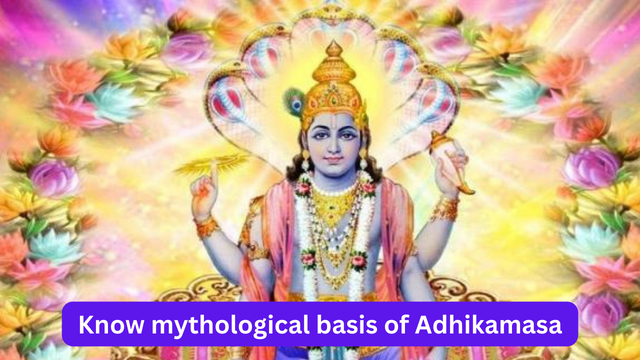In the Hindu calendar, once every three years, an additional month appears, which is known as Adhikamasa / Mal Maas, or Purushottam Maas. This month has special significance in Hinduism. The Hindu pious people of the whole of India are engaged in religious works like worship, devotion to God, fast ing, chanting and yoga, etc in this whole month. This year, due to Adhikamas in Sawan, Sawan will be of 59 days i.e. two months in 2023. Adhikamas is starting on 18 July 2023
When does it come ?
The Panchang or the Hindu calendar is based on the calculation of the Sun and Lunar years. Adhikamas is the additional part of the lunar year, which is formed with a difference of 32 months, 16 days, and 8 hours. It takes Adhikamas to bridge this gap or create a balance between Sun and Moon year.
On the other hand, according to the Indian calculation method, there are 365 days in the solar year and 354 days in the lunar year. In this way, in one year there is a difference of 11 days between the lunar and solar years, and in three years this difference becomes 33 days. This 33 day becomes an additional month after three years. These additional 33 days are added to a month, which has been named Adhikamas. By doing this, the date of fast festivals remains favorable, and at the same time, due to Adhikamas, help in maintaining the period count properly.

What is the mythological origin of Adhikamas?
According to the legend related to Adhikamas, once the demon king Hiranyakashyap pleased Lord Brahma by doing severe penance and asked him for the boon of immortality. But giving the boon of immortality is prohibited, that’s why Brahma ji asked him to ask for some other boon.
Then Hiranyakashyap asked Brahma ji to give such a boon that no man, woman, animal, deity, or demon in the world could kill him and he would not die even in all the 12 months of the year. His death should be neither during the day nor at night. He neither died from any weapon nor any other weapon. He should be killed neither in the house nor outside the house. Brahma Ji gave him such a boon.
But as soon as he got this boon, Hiranyakashyap started considering himself immortal and equal to God. Then Lord Vishnu appeared in the form of Narasimha avatar (half man and half lion) in Adhikamas and sent Hiranyakashyap’s chest to China with his nails under the Dehri in the evening and sent him to the door of death.

Importance of Adhikamasa
According to the Hindu religion, every living being in the world is made up of five elements (water, fire, sky, air, and earth). Adhikamasa is the time in which a person tries to establish the balance of these Panchmahabhoots present in his body through meditation, meditation, yoga, etc. along with religious works. That’s why a person gets filled with new energy after attaining ultimate purity every three years through the works done during Adhikamas.
Sun’s zodiac sign does not change in Adhikamasa
There is no Surya Sankranti in Adhikamasa. This time Kark Sankranti will start on the 16th of July and Adhikamas of Sawan will start on the 18th. Adhikamas will end on the 16th of August and Singh Sankranti will be on the 17th. Adhikamas are also known as Adhimas, Malmas, and Purushottam month.
Why is it called Malmas?
In Adhikamas, there are no auspicious times for auspicious works like marriage, mundane, house warming. There is no Surya Sankranti this month. For this reason, this month has been considered a dirty month i.e. Malmas. Rituals like Namkaran and Yajnopavit are also not performed in Malmas.
Why is it called Purushottam month?
According to the popular legend in this regard, Adhikamas were not considered auspicious. For this reason, no god wanted to be the master of this month. Then Adhikamas prayed to Lord Vishnu. Hearing the prayer of Adhikamas, Vishnu ji gave this month the best name of himself, Purushottam. Since then this month came to be known as Purushottam month. During this month, reading and listening to Bhagwat Katha, chanting mantras, worship, religious rituals, charity, etc. auspicious deeds are done.

